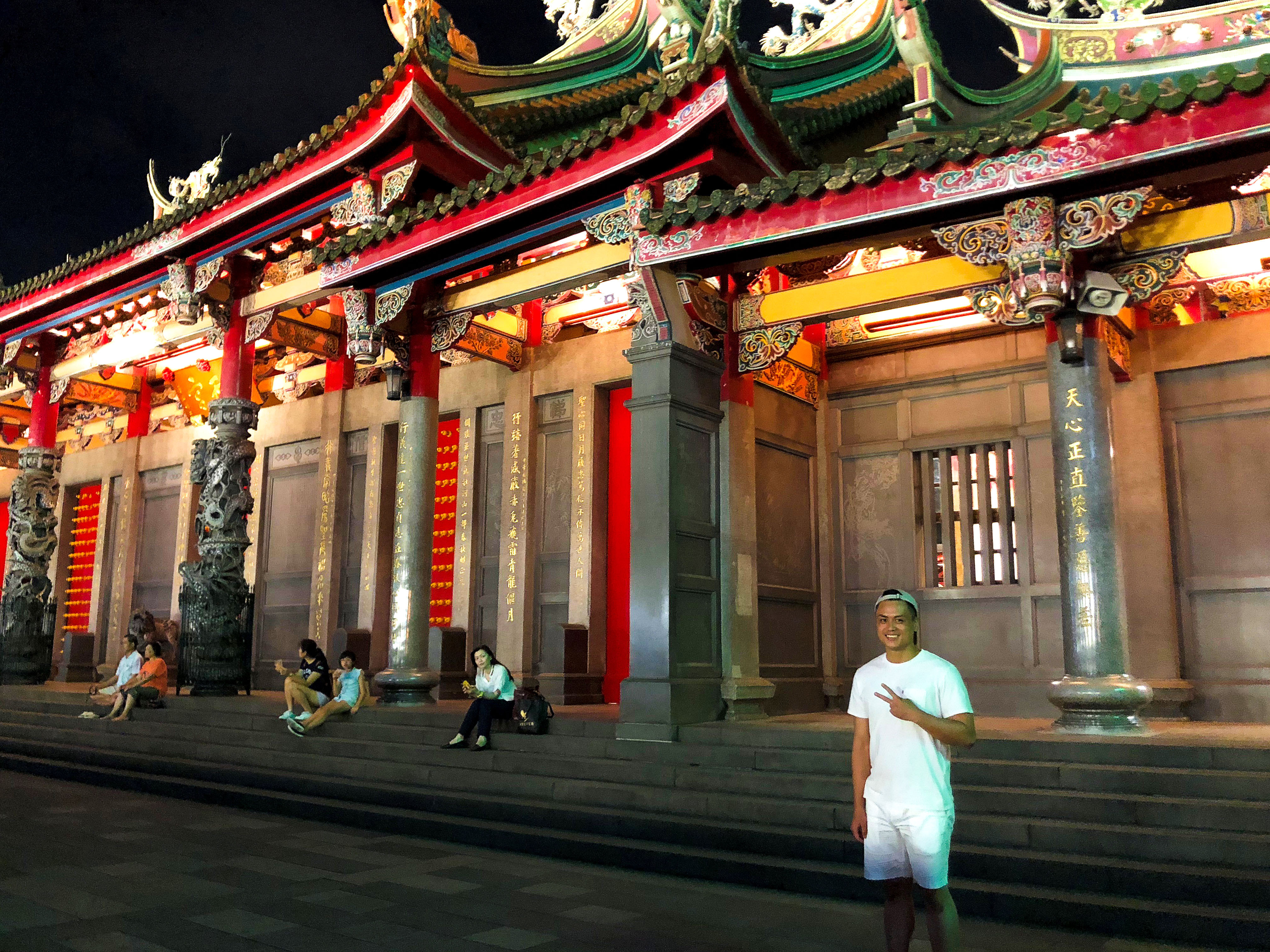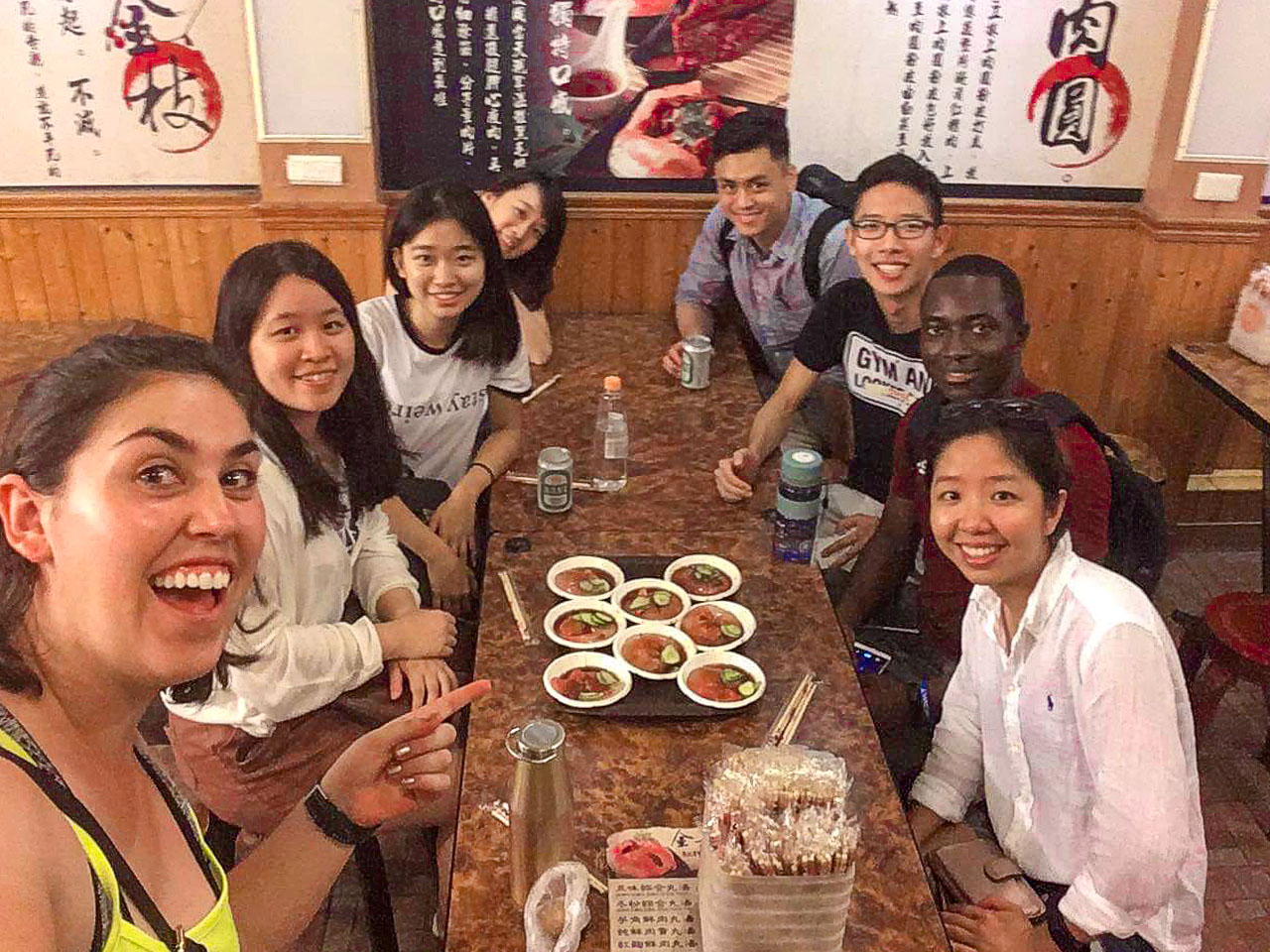My name is Gio Caballero. I am a first-generation immigrant, United States Army veteran, non-traditional student, University of California Santa Barbara (UCSB) graduate, and 2020-2021 Benjamin A. Gilman International Scholarship Alumni Ambassador. In the summer of 2018, I conducted cancer therapy research at National Taiwan University in Taipei, Taiwan.
Prior to my undergraduate experience at UCSB, all I wanted to do was learn molecular biology (because it was complex and I understood it) and then become a medical doctor (because being a health professional was expected in my family). My experience in Taiwan changed that; I am now a graduate student in psychology with an emphasis on consumer research at New York University. And in this blog entry, I will share my thought process during my study-abroad (from application to experience) with the situation of higher education today in mind.

Arrived early and explored Taipei before the start of the program
Now is a great time to explore study-abroad
Consider yourself fortunate if you are enrolled in a 4-year university for Fall 2020 despite the low enthusiasm for travel. Although COVID-19 forced universities to start next semester virtually with some opting to go hybrid and caused general morale in higher education to drop, recognize that society is working on overdrive to best adapt to the new situation. And like many crises in the past, this too shall pass, but so do the opportunities that come with it.
In applying for any position, more than the attractiveness of the opportunity, I always think of the relative economic supply and demand. For instance, the best time to get involved in the market is during a downturn –the same can be said for study-abroad and scholarships: the planning begins now.
Expect changes and make back up plans
Going to Asia was the last thing on my mind, let alone study-abroad in Taiwan. I wanted to go to Ireland for a summer physics program that would have knocked out a year of physics in eight weeks, however, a forest fire in Santa Barbara caused the finals to be suspended. Grades were delayed and I missed the deadline for Ireland. I was forced to choose an alternate and was logically left with Taiwan. The application for study-abroad was a journey, no wonder applications are usually submitted half a year before. It involved reviewing school programs, professors, and academic literature; planning realistic goals, and setting implementations to achieve those goals.
The study-abroad experience in Taiwan was a game-changer. Not only did it help me win the Gilman Scholarship, but it also satisfied a big portion of the undergraduate experience that I lacked.
Study abroad solve peculiar obstacles
I was in my 9th year of undergraduate studies when I transferred to UCSB and I lacked general education and prerequisite courses to fully major in biology. I had no research experience and had not immersed myself in college life –the kind that help you reach personal growth. I could not afford two extra years and I wanted to graduate as soon as possible because I had already been aiming for graduate school and I did not want to use any more scholarships for undergrad. Enter study-abroad.
The study-abroad programs at UCSB provided tremendous benefits. It situated you to be immersed in a foreign land or culture and the academics were packaged in a way that maximized learning in a short amount of time. At National Taiwan University, I conducted molecular-biology techniques which included molecular cloning, polymerase chain reaction, cell culture, and western blotting –opportunities that were extremely scarce at UCSB. I worked toward my project from 10 AM to 6 PM Monday to Thursday, and either left early on Fridays or participated in a culture trip.
My summer experience was so good that even at 27 years old, I felt that I had reached another level of growth for a relatively short time, and I realized that molecular biology was not the career path for me.

In Jiufen with friends from the American Institute in Taiwan Youth Camp
Takeaway
On my academic transcript, the study-abroad in Taiwan counted as 8 units of electives; however, it was much more than that. I became a much more grateful person and it provided the ground for me to re-imagine my assets and talents in the search for a career after the military.
Whether by insight or negation, growth is achieved by seizing the opportunities of the moment. For non-traditional students like me, there is only so much time to explore academic pursuits before the dread of launching a career preoccupies the mind. Study-abroad is an accelerant, and the Gilman Scholarship, for a lack of a better word, is an enabler.



